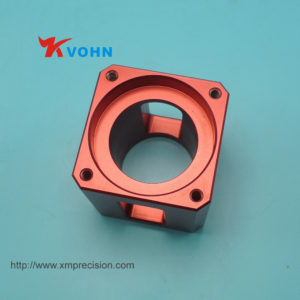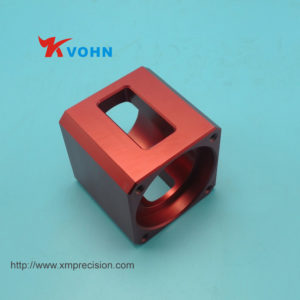As an important base for scientific research and personnel training, laboratories have experienced crises and accidents. This is particularly true for chemical laboratories, which use a variety of hazardous chemicals and various types of electrical equipment, and often involve high-temperature, high-pressure, vacuum, radiation, magnetic fields, strong (excite) light and other risk factors, combined with the narrow laboratory per capita use, Laboratory personnel are prone to fatigue due to prolonged work. Numerous safety hazards make the safety of chemical laboratories an issue that cannot be ignored. In particular, during the hot summer months, more attention is needed. sheet metal process
Laboratory fire safety
1. A certain amount of fire-fighting equipment must be stored in the laboratory. The fire-fighting equipment must be placed in an obvious location for easy access, designated person management, all personnel should love and protect the fire-fighting equipment, and check and replace regularly as required.
2. All flammable and explosive materials (such as hydrogen, nitrogen, oxygen, etc.) stored in the laboratory must be kept away from the fire source and power source, and must not be stacked randomly. Fireworks are strictly prohibited in laboratories that use and store flammable and explosive materials. sheet metal process
3. It is not allowed to randomly pull wires or overload the power. There must be no exposed wires in the laboratory. It is strictly forbidden to replace the fuses with wires; no items can be stacked in the power switch box.
4. Electrical equipment and lines, plugs and sockets should be inspected frequently, and remain in good condition. It is necessary to notify the electrician of repairs if it is found that sparks, short-circuits, heat, insulation damage, aging, etc. may be caused. Electric heaters, electric ovens and other equipment should be able to make people go off.
5. Use electric iron and place it on a non-burning bracket. Put no flammable materials around it. Immediately after use, remove the power plug.
6. Combustible gas cylinders and combustion-supporting gas cylinders must not be mixed and placed. All types of cylinders must not be near heat sources or open flames. Sun protection measures must be taken to prevent collisions and percussions, and paint marks should be kept intact. Special bottles should be used. The flammable gas cylinders used should generally be placed in a place with outdoor cool and air circulation. They should be piped into the room. Hydrogen, oxygen and acetylene should not be mixed together. Keep a distance of more than 10m from the used fire source. All cylinders must be fixed to prevent dumping. sheet metal process
7. Unauthorized and filed in the laboratory must not use high-power electrical equipment to avoid exceeding the power load.
8. It is strictly forbidden to stack items on the corridor inside the building to ensure that the fire protection can be kept open.
Laboratory chemical safety
1. Chemicals used by laboratories of all types and at all levels must be purchased by the school in a uniform organization, and no laboratory or individual may purchase them privately. The purchase of highly toxic drugs and precursor drugs must be approved by the public security department and can only be purchased with a license.
2. Chemicals should be classified and stored. The interacting drugs must not be mixed and must be stored in isolation. All drugs must have a clear label, storage rooms and cabinets must be kept clean and tidy. Medicines with special properties must be stored according to their characteristics. Unnamed, expired drugs should be promptly cleaned up and destroyed. Do not store highly toxic drugs in the laboratory. sheet metal process
3. Dangerous chemical containers should be clearly marked or labeled. Chemicals that are inflammable, inflammable, explosive, or produce toxic gases must not be stored in places exposed to open air, moisture, leaking rain and low water; hazardous chemicals that are easily exposed to sunlight, which may burn, explode, or produce toxic gases. Drugs should be stored in a cool, ventilated location. Stored areas of hazardous chemicals should be provided with prominent safety signs.
4. Poisonous articles must be stored in a special toxic library at the school. The warehouse must meet the relevant safety requirements and must be properly kept by “double double locks”. The use of highly toxic substances must be approved by the school security department. The minimum amount should be collected according to the use situation. The “double” should be collected, and the “double” should be used. At the same time, the registration and consumption records must be made and used strictly. , so that “double double lock” safekeeping.
5. The personnel engaged in the experiment of dangerous chemical drugs shall receive corresponding safety technical training so that they are familiar with the nature of the drugs used and skilled in the operation methods of the corresponding drugs. In particular, the use of flammable, explosive, highly toxic, pathogenic, and stress-responsive dangerous chemical products that are dangerous in nature should be used as an experiment, blind operations must be strictly prohibited, relevant operating procedures must be in place, and national and industry regulations Standards are strictly enforced. sheet metal process
6. The wastes produced by laboratories shall not be randomly discarded and randomly discharged into the ground, underground pipelines and any water sources to prevent environmental pollution. The experimental waste liquid waste should take appropriate measures to do “harmless” treatment. The laboratories that can’t be handled are not allowed to discharge and handle it privately. The laboratories should use special containers to classify and store them to prevent secondary pollution caused by leakage and loss.
7. All laboratories will transport the collected waste liquids and wastes to the waste collection warehouse under the laboratory equipment management office, and will be disposed of by the real room equipment management office in conjunction with the competent department designated by the Environmental Protection Agency.
Laboratory Biosafety
1. Laboratory biosafety involves the safety of human living environment. The state attaches great importance to the management of biosafety. All relevant laboratories must also attach great importance to laboratory biosafety, and must effectively monitor and prevent laboratory bio-contamination. Check and discover hidden dangers should be promptly reported and resolved. sheet metal process
2. The laboratory shall regularly train the staff to ensure that they have mastered laboratory technical specifications, operating procedures, biosafety protection knowledge and practical operating skills, and conduct assessments. Only after the staff has passed the assessment can they be employed. Those who have not been trained in learning must not engage in related work.
3. Laboratory safety management personnel shall formulate laboratory biosafety operating procedures according to the specific conditions of the laboratory, and conduct education and training on biosafety knowledge for students entering the laboratory for experimentation.
4. Without the approval of the Ministry of Agriculture or the Municipal Bureau of Agriculture, it is not allowed to collect, transport, and receive the materials for the preservation of major animal epidemic diseases without authorization, and may not transfer or give any material that has been initially identified as a major animal epidemic disease or has been diagnosed as a major animal epidemic disease. Samples of the disease are shipped abroad or taken out of the country.
5. Biological laboratory waste (including animal residues, etc.) shall be collected in special containers and processed after high temperature and autoclaving. Disposable gloves in biological experiments and articles contaminated with EB carcinogens should be uniformly collected and disposed of, and must not be disposed of in ordinary garbage cans. sheet metal process
Laboratory radiation safety
1. Each source unit must apply for a permit and an environmental assessment before submitting related work, and the relevant work can only be carried out after the environmental assessment and obtaining a permit.
2. The personnel engaged in radioactive work must abide by the radiation protection laws and regulations, accept occupational health monitoring and personal dose monitoring and management, and master the knowledge of radiation protection and related laws and regulations. The radiation safety training organized by qualified personnel can only be performed after passing the assessment. . At the same time, radiation workers must take the training certificate, personal measurement test data, and health examination results to participate in the regular review of the superior health authority.
3. Radiation workplaces must be equipped with anti-theft, fireproof, and leak-proof facilities to ensure the safe use of radioisotopes and radiation devices. Isotope packaging containers, radioactive isotope-containing equipment, radiation devices, and radioactive workplace entrances must be placed with radiation warning signs and working signals. sheet metal process
4. Each source unit should be equipped with necessary protective equipment and monitoring instruments, establish a sound safety inspection system, and periodically perform safety inspections of radioactive isotopes, radiation devices, and radiation workplaces used by laboratories and make records. Related laboratories should regularly check the radiation surface contamination and make records. The test records shall be properly preserved and subject to the inspection and supervision of the school laboratory safety management department and the superior department.
5. When purchasing radioactive sources, isotope reagents, and radiation devices, an application must first be submitted to the school. After being reviewed and reported to the Security Office for record approval, a “quasi-purchase permit” will be issued to the government environmental authority to entrust the purchasing department to purchase.
6. Each source unit must establish a sound registration system for the storage, use, and consumption of radioactive isotopes so that accounts are consistent. The experimental process must be careful, strictly in accordance with operating procedures, do a good job of security protection.
7. Radioactive wastes (including isotope packaging containers) produced by isotope experiments must not be disposed of as ordinary waste. Must report to the school, after the school agrees, the school asks the qualified company or unit to carry on the unified disposition. sheet metal process
Large-scale equipment and equipment safety
1. Each large-scale instrument and equipment must have a person responsible for management. Each large-scale instrument and equipment is equipped with a “Large-scale precision instrument and equipment usage record”, and it is necessary to record the use condition truthfully.
2. According to the performance requirements of large-scale equipment and equipment, provide installation and use of equipment and equipment, do a good job of water, electricity, and should be based on the different conditions of the equipment to implement fire, moisture, heat, frost, dust, shock, magnetic , anti-corrosion, radiation and other technical measures.
3. It is necessary to formulate the rules for the safe operation of large-scale instruments and equipment. Personnel who use large-scale instruments and equipment must be trained and tested before passing. sheet metal process
4. Pay attention to the grounding, electromagnetic radiation, and network safety of the equipment to avoid accidents.
Experimental technology safety
1. Laboratory staff and students must receive laboratory safety education in advance before carrying out experimental operations. When carrying out safety education, they must warn of the consequences of non-operational procedures. Laboratory staff and students must strictly follow the equipment and experimental operating procedures for experimental operation. sheet metal process
2. For laboratories conducting pressurized vessels, strong electricity, driving, flammable, explosive, and highly toxic tests, the rules for the safety of the laboratory should be formulated in accordance with the relevant regulations of the State and the school. The personnel engaged in the above-mentioned experiment must be trained in safety techniques and can be operated independently after passing the examination.
3. The labor protection work of the laboratories must be conducted in an environment that is harmful to the human body such as high temperature, low temperature, radiation, germs, noise, toxicity, laser, dust, and ultraclean, and the supervision and labor protection of the laboratory environment must be strengthened. sheet metal process
CNC Machining Service & CNC Machining parts

professional cnc machining aluminium parts

High demand Precision cnc machining parts

Aluminium machining part
